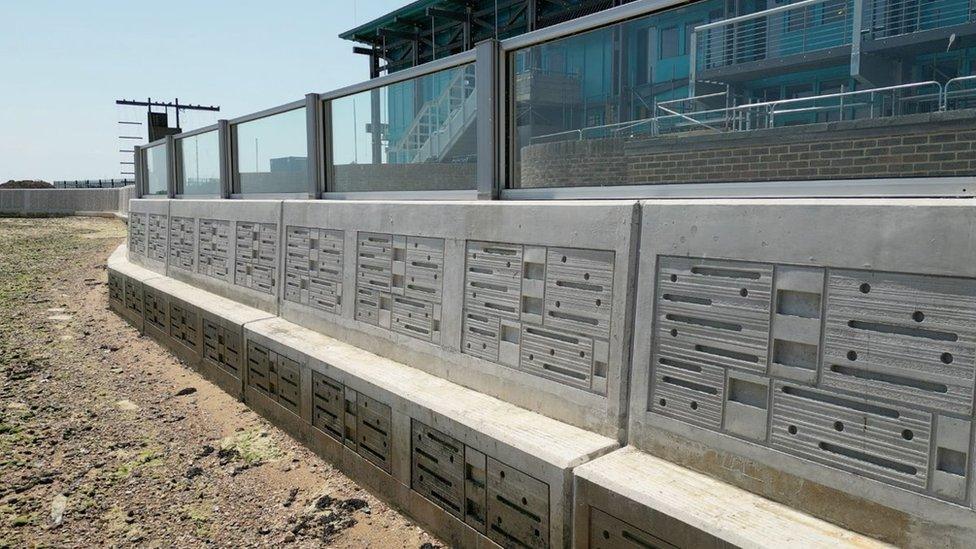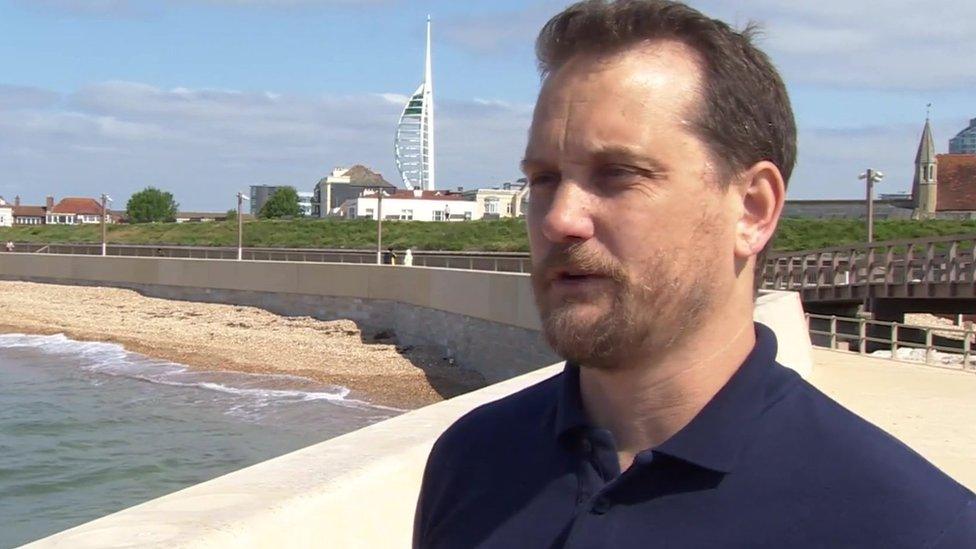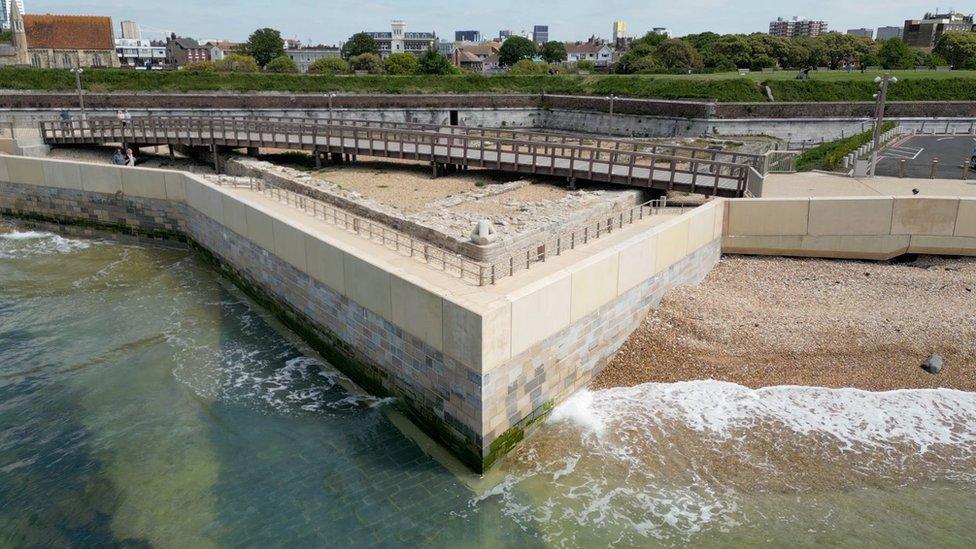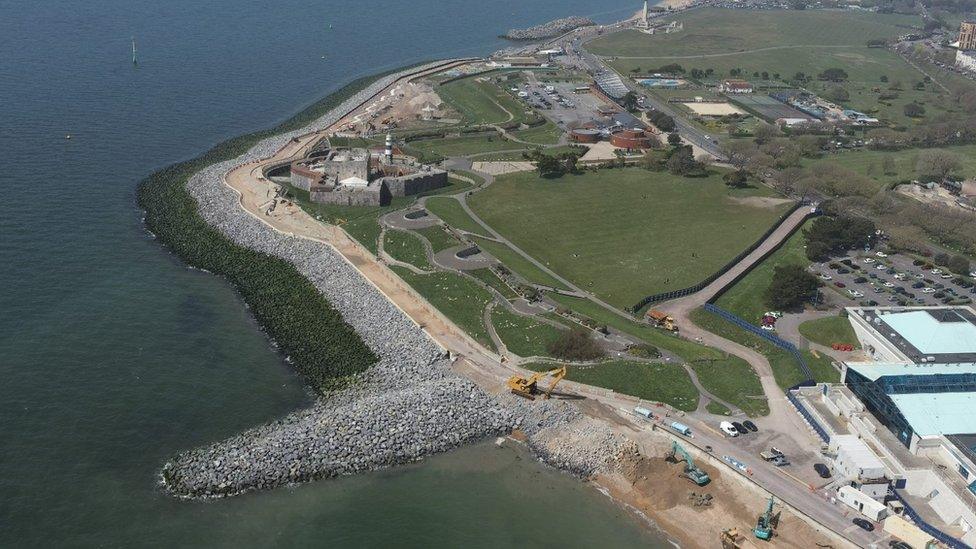Portsmouth sea defence scheme moves to next stage
- Published

Parts of the sea wall have a textured design to encourage growth of marine life
The next phase of Portsmouth's £180m coastal defence scheme, designed to protect the city from rising sea levels, is due to get under way.
As one of the UK's lowest lying cities, Portsmouth is particularly vulnerable to flooding as sea levels rise.
Defences are being built along a 4.5km (2.8-mile) of coast, aimed at protecting some 4,000 homes.
Marine expert Prof Ivan Haigh warned the threat from rising sea levels would "only get worse".
The Southsea Coastal Scheme, which started in September 2020, includes building walls, raising land and widening beaches between Old Portsmouth and Eastney.
October sees the closure of the promenade at The Pyramids in order to start construction of the next phase of the scheme.

Prof Ivan Haigh said Portsmouth was vulnerable to flooding
Prof Haigh, professor in ocean and earth science at the University of Southampton, said with no defences about 40% of the island city would flood regularly.
"Not only is sea level rising, it's getting faster and faster. Our best guess at the moment is around a metre by 2100 - but if there is a major collapse in one of the Antarctica or Greenland ice sheets then potentially it could be a lot higher than that," he said.
"If we are able to reduce our emissions to zero, lots of the negative impacts of climate change would be decreased.
"But sea level rise is the opposite to that. We've only warmed the surface of the ocean. That heat takes hundreds of years to translate into the deep ocean.
"We started off processes in Greenland and Antarctica that we can't reverse. Sea levels are going to continue to rise for hundreds, maybe even thousands of years."

The work is due to be completed in 2029
Some parts of the new defences have been designed with textures to encourage growth of marine life.
The scheme has attracted international interest - officials from Singapore visited the city while planning their own multibillion-dollar defences.
Although Portsmouth's new measures, due to be completed in 2029, have been designed for the next century, it is possible they could be made higher in the future.

Follow BBC South on Facebook, external, Twitter, external, or Instagram, external. Send your story ideas to south.newsonline@bbc.co.uk, external.
Related topics
- Published12 June 2023

